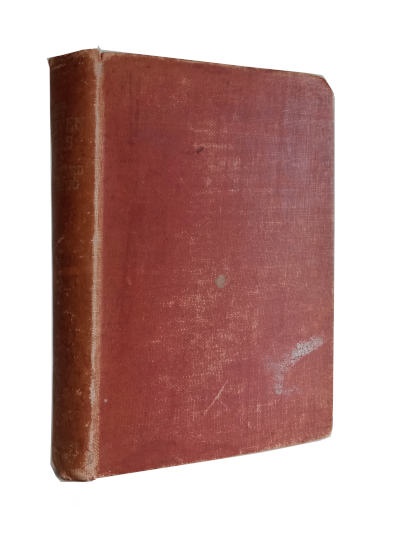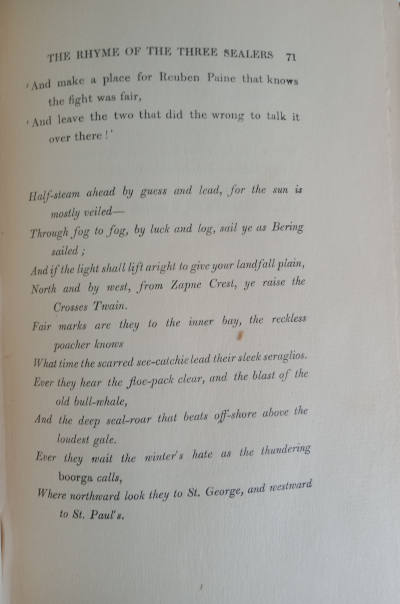About the book (from The Kipling Society):
The Seven Seas, published in London and New York on October 30th 1896, after his family left their Vermont home Naulakha for good in August 1896, is at once modern and Victorian, English and American. It is modern in its fascination with new technologies of communication (telegraph cables, improved steamships and railroads) and in its multiple demotic or colloquial voices, yet as I argue below, two of its key poems ‘A Songof the English’ and ‘The Mary Gloster’ are inspired by English Victorian originals. Scattered references in Kipling’s letters between 1894 and1896 to the progress of his new book of verse, and the letter of July26, 1896 to his New York editor, anticipating page proofs and giving instructions about the placing of ‘The Mary Gloster’ and ‘Sestina of theTramp-Royal’, show that he wrote the poems and planned the volume’s composition well before he moved to England.
The Seven Seas was one of Rudyard Kipling’s successes. 22,000 copies were subscribed in Britain in advance of its publication, and when Kipling died in 1936, 182,000 copies had been sold, more than any of his poetry collections except Barrack Room Ballads which sold255,000. Its poems amply fulfil the promise of the title page, featuring a storm-lashed, oilskin-clad sailor at the wheel. 20 of the 34 poems inthe first half are directly concerned with ships, sailors or seafaring, and all but five of the others deal with the related topics of travel, communications technology and connections across space and/or time, whileFurther Barrack Room Balladsconclude with the homeward-bound soldier of ‘For to admire’ contemplating an unusually calm ‘Injian Ocean’.




